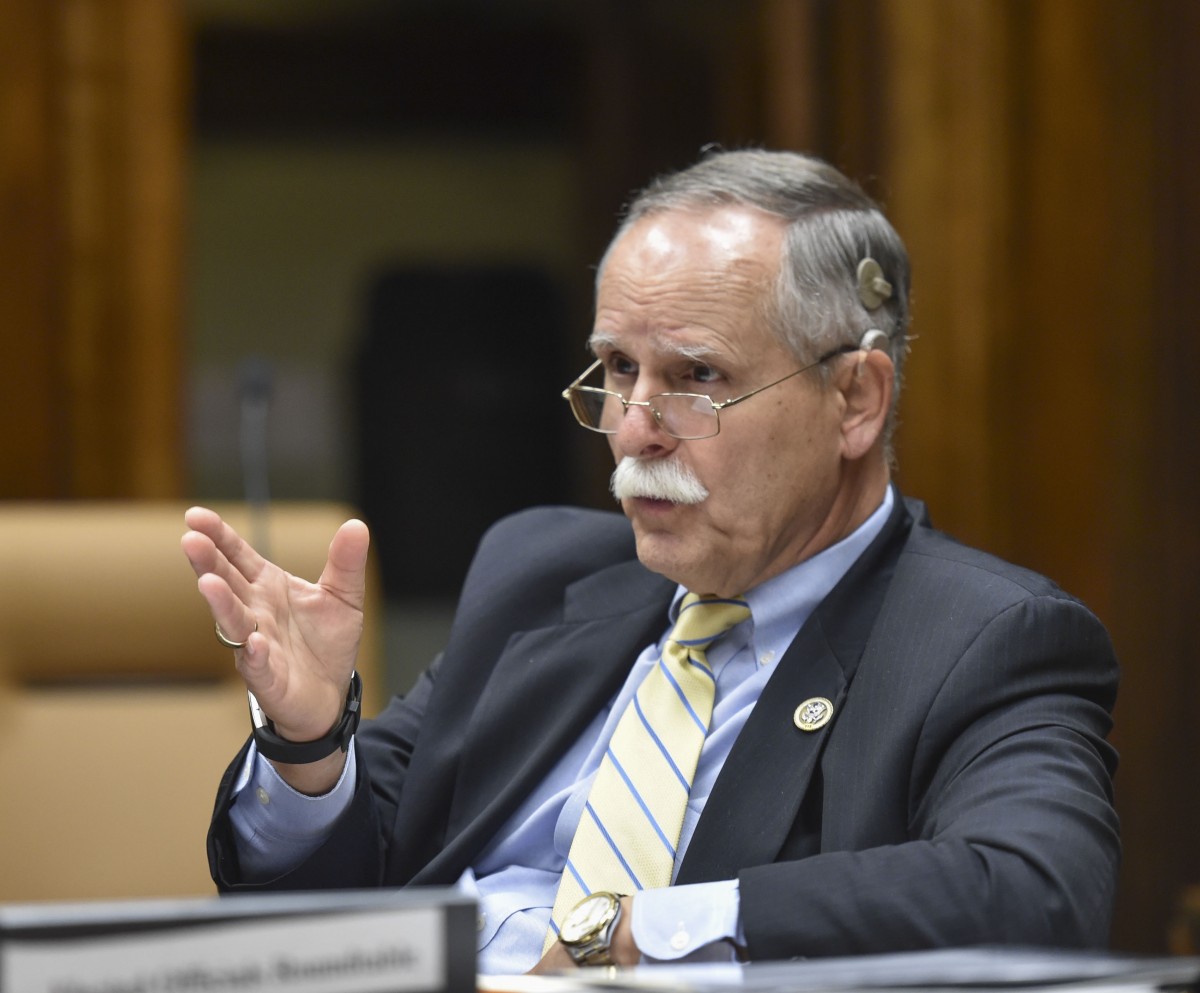MORGANTOWN — With unemployment at historic lows and investment in West Virginia on the rise, Republican Congressman David McKinley said he’s energized to keep the economic momentum going while continuing to tackle issues like health care and opiate addiction.
The incumbent, McKinley has filled West Virginia’s 1st District seat in the U.S. House of Representatives since 2011. He faces a challenge in November from Democrat Kendra Fershee.
McKinley recently sat down with The Dominion Post Editorial Board to discuss his thoughts on a range of topics, including President Donald Trump’s tax cuts, the need for a resurgence in vocational education and why he’s a staunch supporter of states’ rights on issues like gun control and marijuana legislation.
According to the West Virginia Chamber of Commerce, the Mountain State had the eighth fastest growing GDP in the country in 2017. A big part of that, McKinley said, was due to cuts to corporate taxes and the rolling back of Obama-era regulations that stifled investment.
He pointed to hundreds of millions in recent spending across West Virginia by firms like Boeing, Northrop Grumman and HINO Manufacturing.
“We’re seeing it. I just met with a Chinese group. I met recently with a group out of India. They’re coming, and why, because they’ve found that it’s more economical to build in the United States than it was in the past, McKinley said.
The cuts to corporate taxes are permanent. McKinley said he supports making the cuts to personal income taxes permanent as well. Doing so, he said, will boost consumer confidence and continue the positive momentum.
“You’re not going to see the real impact of this tax reduction until next year,” he said. As an example, he said a teacher with two children earning $40,000 annually won’t be taxed on the first $24,000 to $28,000 of income.
“Once she sees that and has that confidence and starts spending that money that’s suddenly now in her pocket to spend, I think the economy will continue to grow,” McKinley said.
In order to fill the jobs that come with investment, McKinley said the country needs to move past the notion that learning a skilled trade is less marketable than obtaining a four-year degree.
That thinking, he said, has left gaps in the work force in West Virginia and across the country in crucial fields like trucking.
“We just put $2 billion across the country to try to kick-start counties and school boards to get back and reinstitute vocational education,” McKinley said, noting vocational training often requires lower teacher-to-pupil ratios than classroom instruction, making it a prime candidate for school boards looking to tighten the belt.
“I want to talk about changing the school-aid formula so we can enhance schools having the opportunity to stress vocational education,” he said. “We’ve got to have a work force.”
On issues like gun control and marijuana, McKinley said he encourages using states as a laboratory for the crafting of federal policy.
While he said he will be “very protective” of a citizen’s right to own firearms, he thinks there is a lot of work to be done dealing with mental health and how it can be a precursor to violence, particularly when combined with factors like addiction.
“It’s not the third rail. We shouldn’t be afraid to touch it or talk about it. If people are having issues, they shouldn’t have access to weapons. We need to be able to check that,” McKinley said, adding he’s a proponent of tighter security in schools as a deterrent to violence, not arming teachers.
As it pertains to health care, McKinley said claims that Republicans in Congress want to eliminate coverage for pre-existing conditions is a conveniently “divisive message that scares people.”
“We’re going to make sure anyone with pre-existing conditions is going to have health care coverage, period.”
McKinley said he’s putting his focus on prescription drugs, explaining he supports legislation that would get generic drugs into the market quicker and institute tougher penalties on pharmaceutical companies that choose to drag out the release of expired patents by forcing litigation.
“They lose in court. They know they’ll lose in court. They do it every day. But it might take four, five, six years to adjudicate,” McKinley said. “We’re tightening that up. It’s going to make it far more punitive for them not to cooperate.”
Lastly, McKinley said he was in support of the president’s decision to pull the U.S. out of the Paris Agreement on climate change because it imposed immediate restrictions at home while giving nations like China and India decades to comply.
China, he said, burns 4 billions tons of coal annually, but has 20 years to get in compliance and no guarantees it will ever do so. He also noted India burns more than 1 billion tons of dirtier, less efficient, lignite coal annually with even less regulation than China and a more relaxed regulatory schedule under the Paris agreement.
“They burn over a billion tons annually with no scrubbers, no cleaning whatsoever, and the Paris Accord said that was OK,” McKinley said, adding “I think we’re going to get back. We’re going to have another negotiation, but we’re going to make sure the United States and us in West Virginia are not going to be held hostage on this.”
Tweet @DominionPostWV. Email bconley@dominionpost.com




